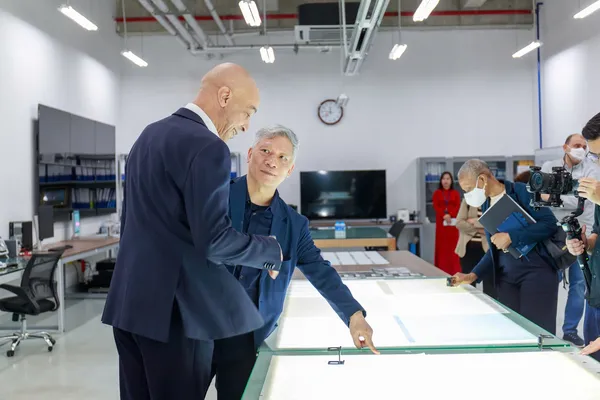

Teed Off with Robert Bicknell

|
by Robert Bicknell
How can a 30-hdcp player can lower their score…?
Well, the first thing that springs to mind is for them to play with half-blind friends, at night, and keep an eraser handy. Scratch golf… If they don’t like their score, scratch it out and write something else.
On the more serious side, I would have to ask why they’re a 30-hdcp in the first place because, while many people start out as a very high handicapper, they certainly shouldn’t be staying at that level for any period of time.
Chances are they bought a set of clubs and started learning from their friends, a book, or the internet. This will almost guarantee they learned incorrectly and developed a lot of bad habits.
Repeat after me… “If you’re a 30-hdcp for more than a month and are not improving, you already have trouble.”
The single best way to learn how to play golf and eliminate unnecessary future headaches is to find a qualified instructor from the very first day. Don’t wait until you have started because you will already have some bad habits to correct.
But OK, for the sake of argument, you’re a 30-hdcp and are looking to get better, so the best way is, again, to find a qualified instructor to help you. He will undoubtedly look at your swing and ask you a lot of questions about different parts of your game. This helps us know where you’re strong and where you’re weak. Some players can hit the ball fine, but cannot putt. Some can putt great but cannot hit the green.
Some can’t do anything well and swing like a blind man chasing butterflies at the edge of a cliff.
However, before you actually decide to find an instructor, you need to ask yourself a very important question… Do you REALLY want to improve your game?
It’s an important question because I see a lot of students claiming to want to improve, but then they almost never practice what they were taught, never practice the drills the instructor gave them, or they were seen running all over the range asking their friends for help in between lessons.
All of these things almost guarantee failure.
Most people really don’t want to put in the effort to actually improve. They’re looking for a quick miracle and, sorry, miracles don’t happen except in fairy tales. If you’re a 30+ handicap, then you have quite a few bad habits and they will take a lot of time and effort to “un-learn” under the guidance of a qualified professional.
The only way to un-learn a bad habit is to replace it with a good habit. That takes time, a lot of time. And a lot of effort. When you’ve been doing it wrong for so long that it feels right, and when the instructor gives you a new motion, it feels uncomfortable. Eventually you will slip back into the bad habit if you’re not conscious of what you are doing.
When a student comes in for the next lesson, the instructor knows immediately if the student has been practicing or not. It’s quite obvious and, make no mistake, we get annoyed.
Perhaps, one of the most annoying things is when a student asks friends, or other pros on the range, to help them. By doing that, they are erasing the entire lesson they just took and insulting their teacher.
If you have a good instructor, you should be able to go from “never swinging a club to out onto the golf course” within 20-25 lessons. Sometimes less. If you want to become a great player, it takes longer.
If you are an experienced player with swing faults, it will take longer to fix, unless you diligently practice what you are taught.
Personally, I prefer to stagger lessons so students always have one or two days in-between lessons to practice what they learned. They also need time off to relax.
But, if I you’re stubborn and don’t want to go to a teacher, yet still want to improve, my advice to is to work on your short game. From 100 yards and less. Focus also on chipping and putting. That’s where most strokes are wasted.
But, honestly, your best bet is to find yourself a qualified teacher… VNS









